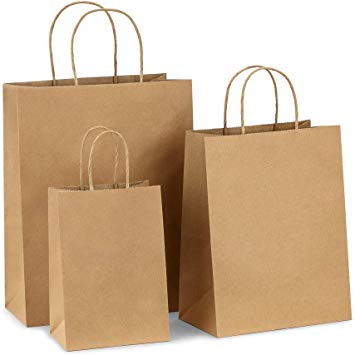Is it About Saving a Dime or Saving the Planet?
The Impact of the 10 Cent Tax on Shoppers in CT.

January 6, 2020
About one trillion single-use plastic bags are used annually across the globe; that’s nearly 2 million every minute. In addition, 8 million metric tons of plastic end up in our oceans every year.
On August 1st, 2019, a 10 cent tax was placed on each plastic bag used at stores across Connecticut. Now, instead of using plastic bags, one either has to bring their own bags, pay the ten cents, or carry their items out in their hands.
This new tax has affected shoppers in many different ways.Victoria Cardoso, a Chemistry and A.P Physics teacher at Fairfield Ludlowe, claims she spends most of her time shopping for groceries at Stop and Shop.
“I have been very good at remembering my reusable bags” Cardoso stated when asked how the tax has affected her.
One time, Cardoso even asked to leave her items in the store while she ran out to the car to get the bags she forgot.
Cardoso only has one complaint, “ The biggest change would just be (that) I don’t have plastic bags at my house now to do other things.”
When asked if she believed that people were making the switch to reusable bags to save ten cents or to save the planet, Cardoso answered,“I think it’s the ten cents because I see many more people using them now than I did previously.”
Tara Coelho, another science teacher at Fairfield Ludlowe, spoke about her experience with the ban on plastic bags. Coelho is environmentally-conscious and believes the plastic bag has not affected her shopping.
“It’s split,” Coelho stated when asked if she believes people care about saving the planet or saving money. “I think there are many more people being environmentally-conscious right now than what we saw 20 or more years ago” Coelho States. “I have witnessed that people are angry if they have to pay ten cents and don’t think they should be told what kind of bag they have to use.”
Daylin Dawid, a senior at Fairfield Ludlowe mainly shops at Shoprite and is a cashier at the store as well.
At Shoprite, costumers are charged twelve cents per bag “at lot of people complain and say its, dumb,” Dawid stated. “They refuse to pay for bags so they put it right back into their cart.”
Dawid said that she believes that about 20% of people truly care about trying to save the planet, and the remaining 80% of shoppers are just trying to save money by not purchasing the store’s plastic bags at check-out.
Kelly Krajnak, another senior at Fairfield Ludlowe who mostly shops at Marshall’s spoke of her experience with the new tax,“In Slovakia and in all of Europe, they have always charged for plastic bags.”
Krajnak said that she has just gotten used to the change and believes that “in a year or so, everyone will get used to it and remember to bring their bags.”
Krajnak also said that she is hopeful that Connecticut will soon be plastic bag free.
As the world enters a new decade it’s time to think… if a ten cent tax can cause a majority of the population to stop using plastic bags, what else can be done to help the earth?
